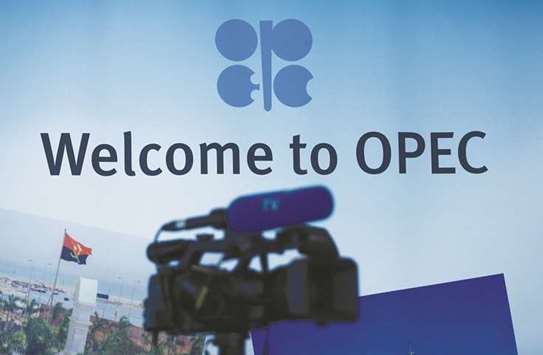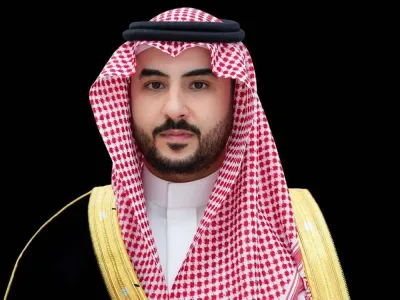Saudi Arabia has floated several oil output hike plans to fellow Opec members, including one with a two-step increase, as the kingdom seeks ways to narrow differences with Russia and the rest of the group, according to people briefed on the discussions.
The ideas, discussed informally among ministers and delegates ahead of next week’s meeting in Vienna, comes as Riyadh tries to rally support for a production increase in the face of staunch opposition from Iran, Venezuela and Iraq, and pressure from Washington, the same people said, asking not to be named discussing private conversations.
Russian President Vladimir Putin and Saudi Arabian Crown Prince Mohammed bin Salman meet in Moscow today to discuss oil policy on the sidelines of the opening match of the Football World Cup.
Russia, the leading member of a group of countries allied to Opec, has proposed a deal that would put about 1mn bpd into the market as quickly as producers could ramp up production, according to a person familiar with the country’s thinking.
Often oil ministers float ideas informally to gauge support, only to change tack as negotiations progress. It’s unclear whether Riyadh would press ahead with any of the plans it has suggested when ministers meet next week.
Saudi Arabia is mulling different scenarios to raise production over the coming months by between 500,000 bpd and 1mn bpd. One proposal envisages a single hike of just 500,000 bpd. Another idea would see an immediate increase of 500,000 barrels, followed by a similar rise in the fourth quarter. The kingdom has also shared ideas with increases of around 600,000 to 700,000 bpd.
In contrast, Saudi Arabia and several other Opec members, including the UAE and Kuwait, and non-Opec nation Oman would prefer a gradual production boost to avoid upsetting the oil market. The two-step production hike could help to smooth the impact of an increase. Some Arab countries have suggested calling an extraordinary meeting in September or October to take stock of the market.
Saudi Arabia last month signalled it was ready to boost output in the second half of the year to ease consumer anxiety about higher prices, a policy U-turn for the kingdom that only weeks earlier advocated for production restraint.
“I think in the near future there will be time to release supply,” Saudi Energy Minister Khalid al-Falih said at the St Petersburg International Economic Forum in Russia in late May.
The change in Saudi tone came after major oil consuming nations, including the US, India and China, complained about rising fuel prices. On April 20, Donald Trump took to Twitter to lambaste Opec’s push for higher prices. “Looks like Opec is at it again,” the US president tweeted. “Oil prices are artificially Very High!”
“The fact that Saudi Arabia wants lower prices in the near term is becoming increasingly obvious,” Amrita Sen, chief oil analyst at Energy Aspects Ltd in London, said in a note to clients.

A TV camera is seen inside the headquarters of the Organisation of the Petroleum Exporting Countries in Vienna, Austria (file). Saudi Arabia has floated several oil output hike plans to fellow Opec members, including one with a two-step increase, as the kingdom seeks ways to narrow differences with Russia and the rest of the group, according to people briefed on the discussions.


